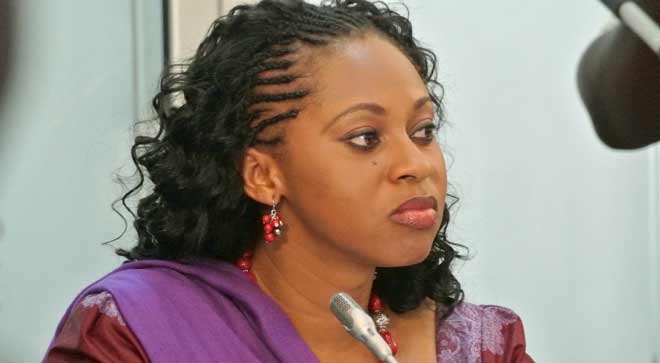
Shining more light on public procurement; a case for Open Contracting Data Standard in Ghana
On the average, it is estimated that governments around the globe spend about $9.5 trillion through contracts every year for a myriad of projects, but often, detailed information on such contracts are unavailable for public scrutiny.
In Ghana, the talk of demystifying contracting data, to facilitate citizen’s access to information on such contracts have been amplified over the past few years. Many well-meaning Ghanaians believe that their participation in the scrutiny of such contracts would help eliminate corruption.
Advertisement
This sudden interest in the procurement process has generally resulted from the perception that government contracts are laced up in corruption. It includes recent media reports that exposed corruption at the Public Procurement Authority (PPA) which was set up to prevent such practices.
The news reports touched the nerves of citizens and sparked off a public outcry which should have informed the government to find the right mechanisms to make procurement processes more transparent. This is because the perception that public procurement is fraught by corrupt practices alone could slow down national development since citizens must trust, to some extent, in such processes to render the needed support to the government in developing the country.
Prevention
The governments burden should be lighter with the emergence of the Open Contracting Data Standard (OCDS), a new technology which when adopted by the government and its agencies, could enable disclosure of data and documents at all stages of the contracting process by defining a common data model.
OCDS was actually created to support organisations to increase contracting transparency, and allow deeper analysis of contracting data by a wide range of users.
However, OCDS has not fully penetrated the country’s procurement space even though some Civil Society Organisations (CSOs) have begun to shine light on the system as a trusted window of introducing public scrutiny to the procurement process.
CSO’s involvement
In February this year, for instance, the Ghana Anti-Corruption Coalition (GACC) brought to a successful end a partnership with the Africa Freedom for Information Centre (AFIC) that helped to implement a project titled, “Strengthening Disclosure and Citizen Participation to improve Value for Money in Public Contracting in Africa”.
The project, which was funded with support from William and Flora Hewlett Foundation was to strengthen the disclosure of contracting data to facilitate citizen’s access to information and participation in the procurement process.
That was to help the country in realising better value for money in public contracting.
According to the Communications Officer of the GACC, Ms Faustina Djabatey, when the project started in August 2018, numerous activities were lined up to achieve its core objectives which included advocacy for contracting information disclosure and capacity building for directors and procurement officers of selected ministries, departments and agencies including the PPA, CSOs, journalists and individuals from the private sector.
She said the project, through its myriad of activities encouraged an open government machinery to disclose information on contracting and public procurement and increase government’s commitment to the open contracting principles it signed unto under the Open Governance Partnership (OGP).
Ms Djabatey noted that the training enhanced the capacity of beneficiaries to implement open contracting commitments in the OGP National Action Plans.
“The project’s successes are visible in project stakeholders’ increased knowledge on open contracting, and specifically on Open Contracting Data Standards (OCDS) and it also contributed to increased interest and commitment by procurement officials of the PPA, and other public offices,” she said.
Public involvement
Beyond that, Ms Djabatey said the public must be made aware of the need to get involved with issues bothering on public procurement and scrutinize contracts to ensure that every project initiated by the government was to their benefit and was deprived of any form of corruption.
“So, for instance, if there is a public toilet being put up in an area, we expect the public to ask questions on where its being cited and how it was being financed by accessing the data on the contract and the procurement process as well,” she said.
GHANePs
Fortunately, the PPA has introduced a new electronic procurement system known as the Ghana Electronic Procurement System (GHANePs), which is currently in the pilot phase and was designed to be OCDS compliant.
On April 30 last year, the PPA launched the new electronic procurement system which was the first of its kind in west Africa. The system when fully implemented would allow procurement and public contracting to be done online, reducing the human interface that is so auspicious for corruption.
This will also enable individuals to get involved in the process because they can monitor the contracts in real time and make the necessary contribution that would help bring the needed transparency.
There is a need for more engagement on the benefits of employing OCDS compliant platforms in the procurement process at all levels, especially at the District Assembly or local government level to help flush out the endemic perception associated with public procurement.
Beneficial
Ownership Register
The passages of the Beneficial Ownership Register as part of the Amended Companies Act (Act 920) is also expected to help the public to get involved with the procurement process.
Advertisement
This Register is expected to avail information on the natural owners of companies and thereby contribute to detecting conflict of interest and collusion during procurement.
This makes the Beneficial Ownership Register a very significant open contracting commitment by the government which would further boost the transparency drive.
Way to go
It is encouraging to see CSO’s get involved, hands on, to help shape the governance process and increase the capacity of government officials to discharge their core mandates.
This is good for democracy because transparency, like it has already been established, is the springboard for a collective resolve by the citizenry to develop the country.
Advertisement




